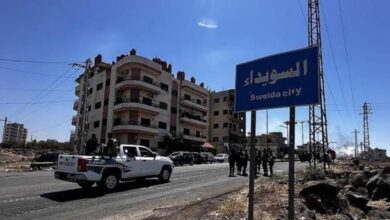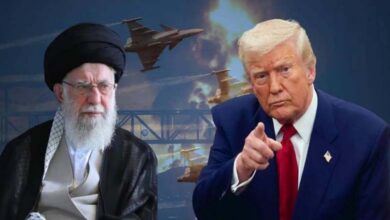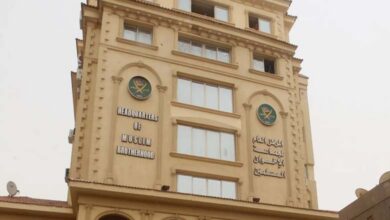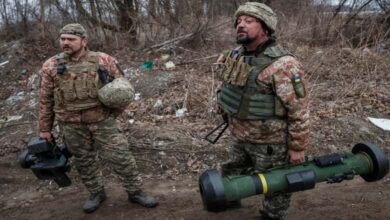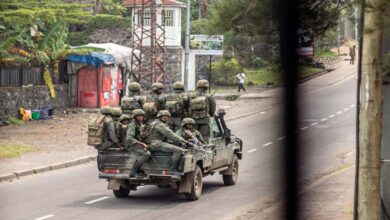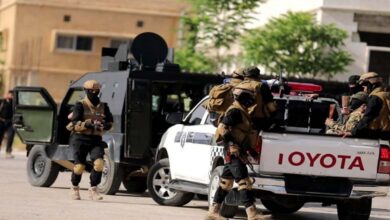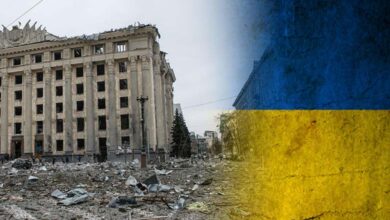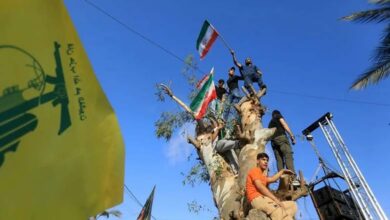Al-Halbousi’s Conditions and Conflict with the Hashd Increase Complexity of Parliament Presidency Crisis
The Coordination Framework meeting saw divisions over amending Article 12 of the internal regulations due to fears of violating the Federal Court’s decision, as well as deepening the Sunni-Sunni conflict.
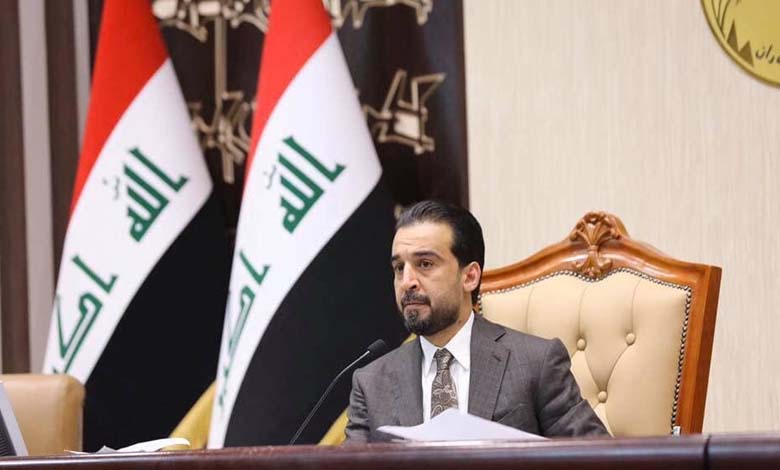
The Coordination Framework forces held a meeting regarding the crisis of the alternative candidate for the presidency of the Iraqi Parliament, following the removal of Mohamed al-Halbousi, without announcing any outcomes. The conflict between the Hashd and the leader of the Taqaddum Party dominated the meeting, where al-Halbousi proposed three “difficult” conditions to resolve the crisis. A source from the Al-Azm alliance confirmed that it is not possible to amend the Council’s internal regulations.
For months, Sunni forces competing with al-Halbousi have been trying to propose candidates in coordination with the Coordination Framework forces, aiming to exclude Taqaddum from the position traditionally allocated to Sunni parties. Meanwhile, the Sunni-Sunni conflict has deepened due to secondary alliances with Shiite forces.
The Shiite alliance held its meeting in Baghdad on Wednesday, attended by Mohamed al-Halbousi, leader of the Taqaddum Party, Muthanna Al-Samarrai, leader of the Al-Azm alliance, and Salem Al-Essawi, one of the candidates for the presidency of the Parliament.
Raad Al-Dahakli, a leader of the Al-Azm alliance, stated on Thursday that the “doors are closed” for those wanting to amend the internal regulations of the House of Representatives regarding the nomination of a new president, following the judicial decision ending Mohamed al-Halbousi’s term.
Al-Dahakli added in an interview with Shafaq News that “political conditions are currently pressing for a session to elect the Speaker of the House of Representatives next week,” explaining that “the current conditions, political pressure, and real will will resolve the issue of electing the Parliament Speaker as soon as possible.”
He continued, “The doors are closed to those who wish to open the internal regulations and amend them for the re-nomination of the Parliament Speaker,” noting that “candidates for the Parliament Speaker position are already present and there is no need for re-nomination. The one who gains the confidence of the members of the House of Representatives will be the Speaker.”
After the meeting, information was leaked about the conditions al-Halbousi presented to Shiite leaders in exchange for resolving the parliamentary crisis. Iyad Al-Samawi, a writer close to the Coordination Framework, revealed that the Taqaddum Party leader proposed three suggestions: the first being that the opposing Sunni camp (which includes the Sovereignty, Al-Hissam, and Al-Azm forces) present three candidates for the Parliament presidency, among whom he would choose one, in exchange for giving up the Ministry of Trade.
The second suggestion, according to Al-Samawi, is that al-Halbousi propose three names to his Sunni opponents, who would choose one for the Parliament presidency in exchange for giving up the Ministry of Trade. The third proposal involves agreeing on three names from the oldest Sunni deputies in the House of Representatives to choose one as president.
Al-Samawi observed that while these proposals seem difficult and contrary to the Constitution and the Federal Court’s decision, some leaders of the Coordination Framework believe they are worth discussing.
The Coordination Framework had set July 20 as the deadline to resolve the Sunni dispute over the nomination of a new President of the Iraqi Parliament, stating that after this date, the matter would be left to the members of the House of Representatives to choose the person they deem suitable for the position.
Informed sources reported that the Coordination Framework meeting was marked by divisions over amending Article 12 of the internal regulations due to fears of violating the Federal Court’s decision, as well as deepening the Sunni-Sunni conflict. Passing this article would allow reopening the nomination for the Parliament presidency and resolve the choice of president.
Al-Halbousi attended the meeting amid escalating conflict with the Hashd, after the chairman of the Hashd, Faleh Al-Fayyad, was accused of exploiting his position in Sunni areas for the Hashd’s service project discussed by the Parliament on Wednesday, which contradicts the principle of military and security institutions’ independence as stipulated by the Constitution.
The Hashd responded to al-Halbousi with an angry statement, which could affect his attempts to win Shiite parties’ support to resolve the parliamentary presidency crisis.
In a press release, the Hashd stated: “We reject what was said by the ousted Speaker of the House against the law on service and retirement for Hashd fighters, as well as the accusations and distortions against the organization and its chairman.”
-
Does Al-Halbousi put an end to Iraqi Hezbollah terrorism?
-
Iraq Grants Deadline for Foreign Workers to Rectify Situations
The organization confirmed that it “operates under the laws that define its relations with political, partisan, and social parties, clearly stipulating its separation from political, partisan, and social frameworks.” They added: “Those who violate the Constitution and the law and are convicted of falsification are not qualified to position themselves as advisers or guides to others.”
The Ataa movement, led by Al-Fayyad, quickly denied any connection to the “Hashd’s work” and announced that the Hashd’s chairman had withdrawn from the leadership of the movement.


